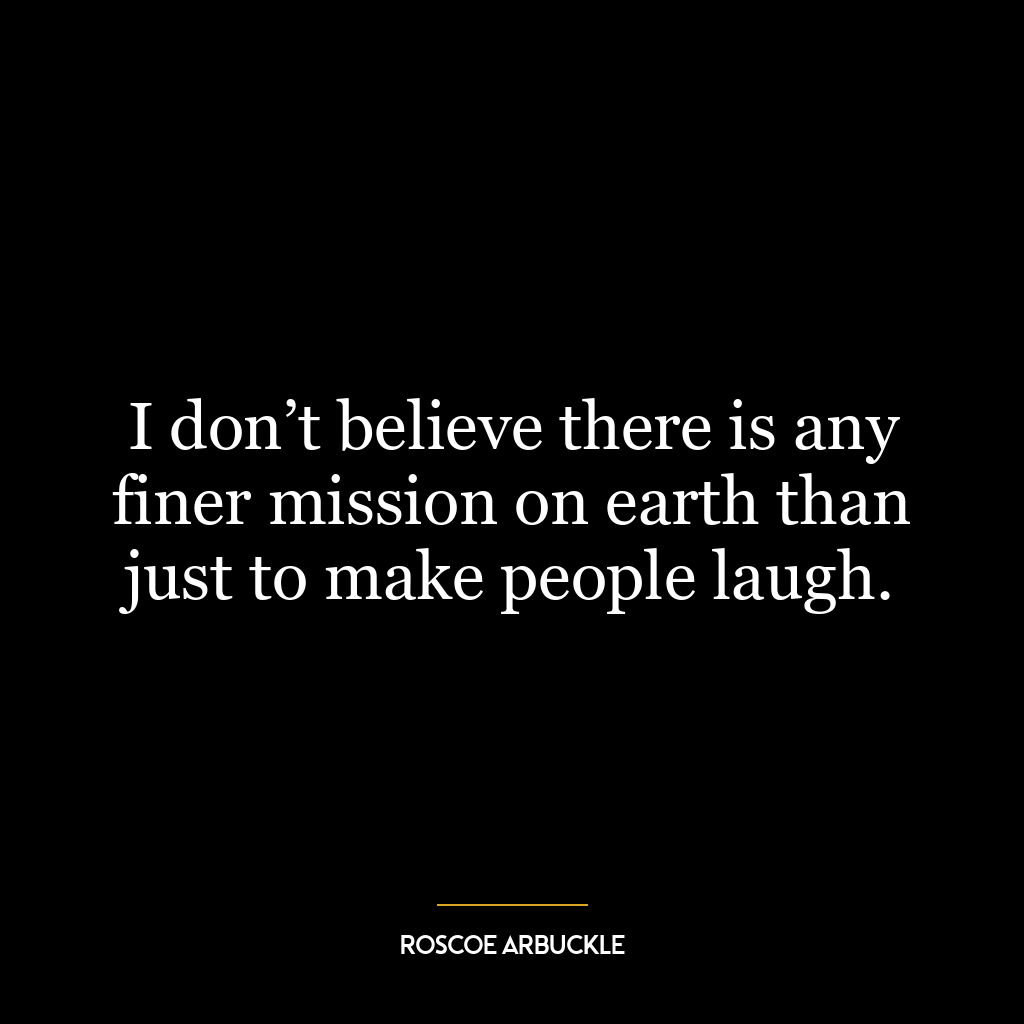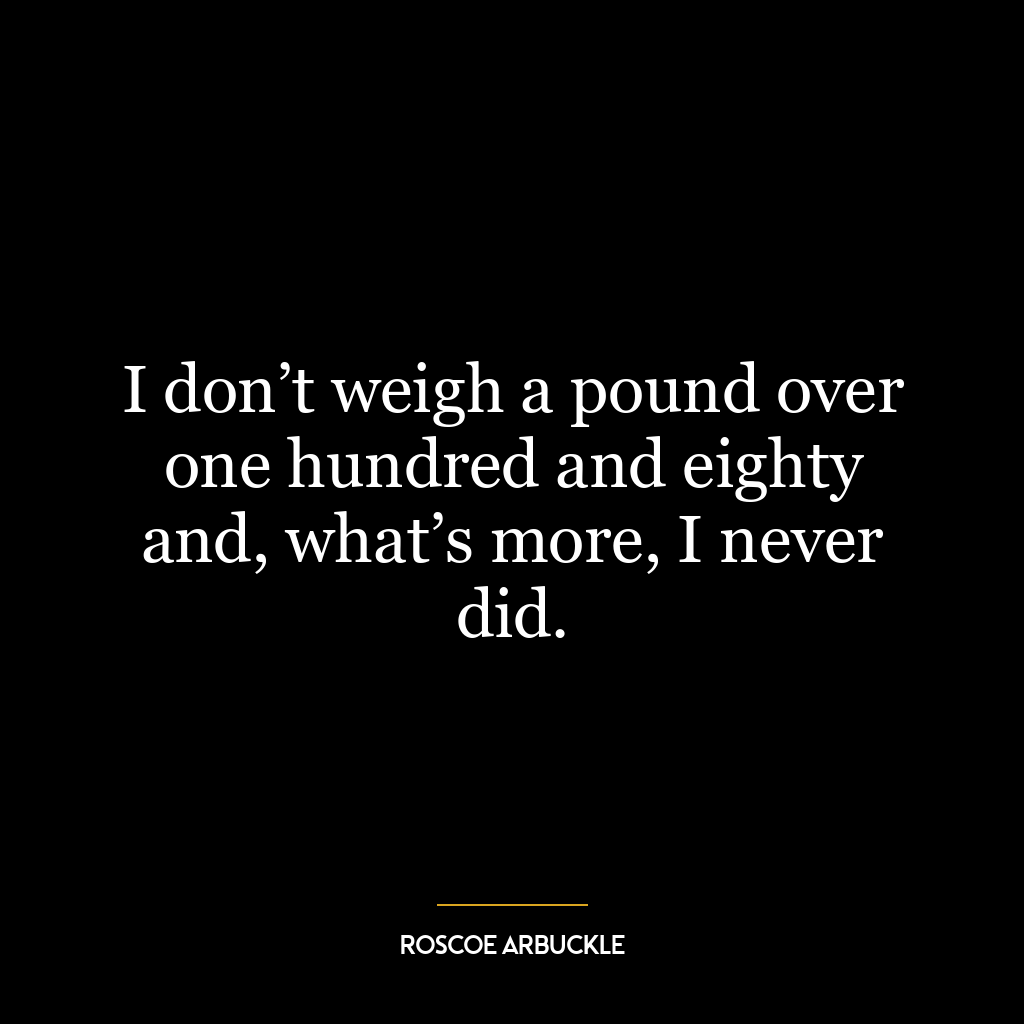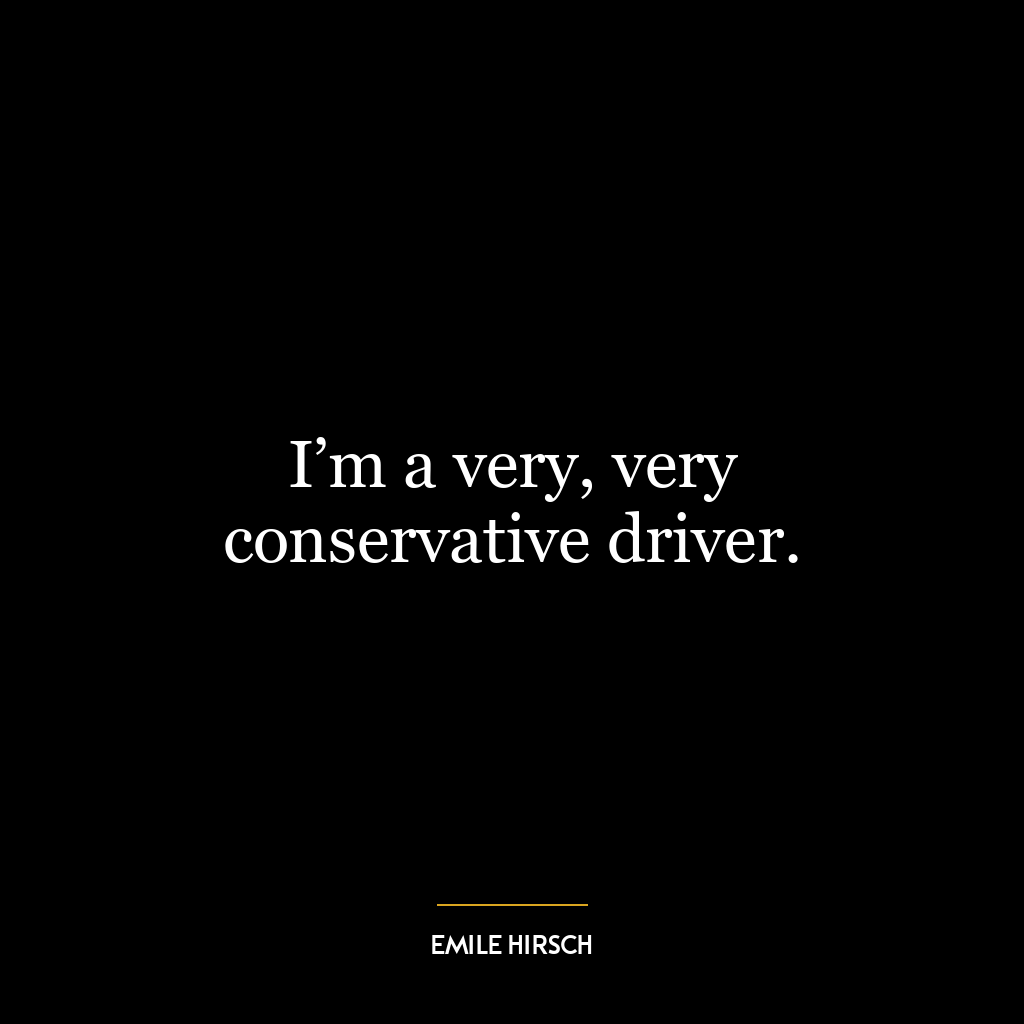Roscoe Arbuckle Quotes
- Actor
- USA
- 1887
Roscoe Arbuckle was an American actor, comedian, and director who rose to fame during the silent film era. He was born on March 24, 1887, in Smith Center, Kansas. Arbuckle began his career in vaudeville and later transitioned to film, where he became known for his physical comedy and slapstick humor…Read More
Roscoe Arbuckle was an American actor, comedian, and director who rose to fame during the silent film era. He was born on March 24, 1887, in Smith Center, Kansas. Arbuckle began his career in vaudeville and later transitioned to film, where he became known for his physical comedy and slapstick humor. He gained widespread recognition for his work in the Keystone Cops films and went on to star in numerous successful comedies, including “Fatty and Mabel Adrift” and “The Round-Up.” Arbuckle also directed several films, including “The Cook” and “The Bell Boy.” However, his career was cut short by a highly publicized scandal in 1921, which damaged his reputation and led to a ban from the film industry. Despite being acquitted of all charges, Arbuckle struggled to revive his career and tragically passed away at the age of 46. Despite the controversy surrounding his personal life, Arbuckle is remembered as a talented and influential figure in early Hollywood comedy.Read Less
Roscoe Arbuckle was an American actor, comedian, and director who rose to fame during the silent film era. He was born on March 24, 1887, in Smith Center, Kansas. Arbuckle began his career in vaudeville and later transitioned to film, where he became known for his physical comedy and slapstick humor. He gained widespread recognition for his work in the Keystone Cops films and went on to star in numerous successful comedies, including “Fatty and Mabel Adrift” and “The Round-Up.” Arbuckle also directed several films, including “The Cook” and “The Bell Boy.” However, his career was cut short by a highly publicized scandal in 1921, which damaged his reputation and led to a ban from the film industry. Despite being acquitted of all charges, Arbuckle struggled to revive his career and tragically passed away at the age of 46. Despite the controversy surrounding his personal life, Arbuckle is remembered as a talented and influential figure in early Hollywood comedy.
Roscoe Arbuckle Career Highlights
- Early Success in Vaudeville: Arbuckle’s career began in the world of vaudeville, where he performed as a singer, dancer, and comedian. He quickly gained popularity for his physical comedy and became known for his large size and agility.
- Silent Film Stardom: In 1913, Arbuckle made his film debut in the Keystone Studios’ comedy short “Ben’s Kid.” He soon became a regular in Keystone’s films and worked alongside other notable comedians such as Charlie Chaplin and Mabel Normand. Arbuckle’s popularity continued to grow, and he eventually became one of the highest-paid actors in Hollywood.
- Creation of the Keystone Cops: In 1912, Arbuckle, along with director Mack Sennett, created the iconic slapstick comedy group, the Keystone Cops. The group’s chaotic and humorous antics became a staple in silent films and influenced future comedy acts.
- Transition to Directing: In 1917, Arbuckle began directing his own films, and his directorial debut, “The Butcher Boy,” was a huge success. He went on to direct over 40 films, including the popular “Fatty and Mabel” series.
- Formation of Comique Film Corporation: In 1918, Arbuckle, along with Buster Keaton and Al St. John, formed the Comique Film Corporation, which produced some of the most successful silent comedies of the time.
Key Contributions by Roscoe Arbuckle
- Physical Comedy: Arbuckle’s unique physicality and agility were a significant contribution to the world of comedy. He was known for his ability to perform stunts and physical gags, which often left audiences in stitches.
- Introduction of Slapstick Comedy: Arbuckle’s films were known for their use of slapstick comedy, which involved exaggerated physical actions and humorous accidents. This style of comedy became a staple in silent films and influenced future comedians.
- Mentorship of Buster Keaton: Arbuckle took a young Buster Keaton under his wing and mentored him in the art of physical comedy and filmmaking. Keaton went on to become a successful actor and director, and Arbuckle’s guidance played a significant role in his success.
- Pioneering Film Techniques: Arbuckle was one of the first filmmakers to use techniques such as close-ups, multiple camera angles, and cross-cutting in his films. These techniques helped to enhance the storytelling and comedic elements of his films.
What Sets Roscoe Arbuckle Apart
- Versatility: Arbuckle’s ability to excel in various aspects of the entertainment industry, including acting, directing, and producing, sets him apart from other comedians of his time. He was a multi-talented performer who could adapt to different roles and genres.
- Charisma: Arbuckle’s charm and charisma on screen made him a beloved figure in the entertainment industry. He had a natural ability to connect with audiences and bring laughter to their lives.
- Controversial Trial: In 1921, Arbuckle was accused of the rape and manslaughter of actress Virginia Rappe, which led to a highly publicized and controversial trial. Although he was eventually acquitted of all charges, the scandal tarnished his reputation and affected his career.
Takeaways
- Arbuckle’s contributions to the world of comedy and film have had a lasting impact and continue to influence comedians and filmmakers today.
- His versatility and charisma made him a beloved figure in the entertainment industry, and his mentorship of Buster Keaton helped shape the future of comedy.
- The scandal and trial surrounding Arbuckle’s career serve as a cautionary tale of the dangers of fame and the power of the media.
In conclusion, Roscoe Arbuckle’s career highlights, key contributions, and unique qualities have solidified his place in the history of film and comedy. Despite the controversy surrounding his personal life, his talent and impact on the entertainment industry cannot be denied. He will always be remembered as a pioneer of physical comedy and a beloved figure in the silent film era.






